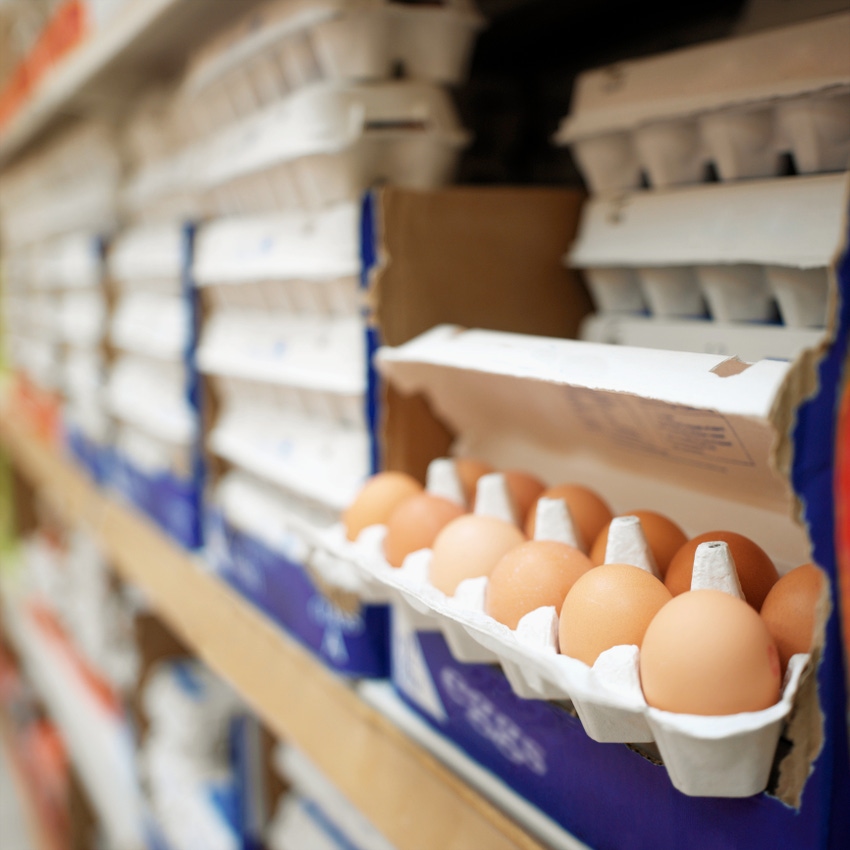American Egg Board dedicated additional monies from reserves for year-round consumer marketing.

The American Egg Board (AEB) said it had a successful year in 2018, helping increase demand for U.S. eggs and egg products across all channels: manufacturing, retail, foodservice and export sales. Additionally, the organization reported significant advancements in egg nutrition knowledge and recognition across scientific and professional health communities.
Thanks, in part, to national consumer marketing efforts, AEB said 2018 was a stellar year for egg sales at retail, with consecutive year-over-year growth for shell eggs. AEB’s Nielsen year-end scanner data showed that shell egg sales increased 2.7% in equalized dozens and 18.5% in dollar sales.
The annual Supermarket News “Fresh Report” showed that fresh categories are the primary drivers of U.S. dollar sales growth and that shell eggs had the largest dollar sales increases.
It has also been projected that shell eggs will grow to $6.5 billion in sales by 2022, up from approximately $5.8 billion in 2018 sales. AEB said shell eggs are the largest part of the retail business, but a category-wide perspective indicates that total egg sales (shell eggs, egg products and hard-boiled eggs) have already increased to nearly $6.2 billion in combined sales in 2018.
To compel more consumers to buy more eggs more often, AEB’s board members directed that additional monies from reserves be shifted to consumer marketing to test the efficacy of moving to year-round marketing — investing in non-traditional windows instead of exclusively during key holiday drive periods.
According to The NPD Group/CREST, total foodservice servings of eggs in 2018 exceeded 8 billion, a 3% increase. Servings at quick-service restaurants (QSR) accounted for 5.8 billion egg servings, affirming AEB’s continued focus in the area.
During the year, AEB forged new partnerships with several top 10 QSRs via innovation, research and promotional efforts. Three major chains also invited AEB to participate in their strategic menu pipeline and development initiatives. Further, AEB approached and successfully worked with Delta Airlines to launch a protein kit featuring a hard-boiled egg on domestic flights longer than three hours, resulting in 132 million impressions from Delta customers.
Last, AEB refreshed its Incredible Breakfast Trends series as an all-day dining platform called Incredible Egg Trends.
Regarding exports, the annual report relayed that U.S. egg production increased 4.8%, while exports increased 13.6%. Exports accounted for 3.4% of egg production in 2018 versus 3.1% in 2016, AEB said. Egg export value is expected to further increase by more than 5% in 2019.
“In partnership with the U.S. Poultry & Egg Export Council, the AEB continued to strategically target key egg markets — the Caribbean, Japan, Hong Kong, Mexico, the Middle East and South Korea — touting the safety and reliability of high-quality U.S. eggs and egg products,” the report said.
New markets were opened for U.S. egg producers in South Africa, India, Tunisia, New Zealand and St. Lucia. AEB also pointed out that restrictions detrimental to U.S. egg exports were lifted in South Korea, and avian influenza regionalization for U.S. eggs also occurred.
AEB leaders said the group has been transforming internally to achieve these results and has done so by streamlining and modernizing policies and administrative processes as well as attracting new talent.
“We’ve invested in employee training and development and have been moving our culture to one of greater cohesiveness, well-being and excellence. Organizationally, we’re much stronger, and we’re poised to continue to grow in both efficiency and effectiveness,” AEB leaders stated.
About the Author(s)
You May Also Like


.png?width=300&auto=webp&quality=80&disable=upscale)
.png?width=300&auto=webp&quality=80&disable=upscale)

